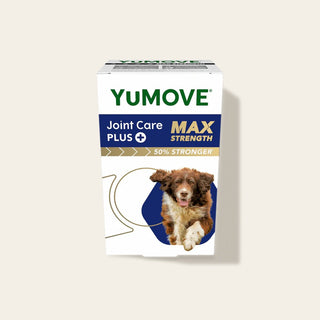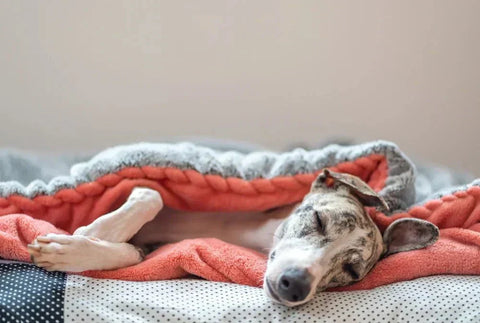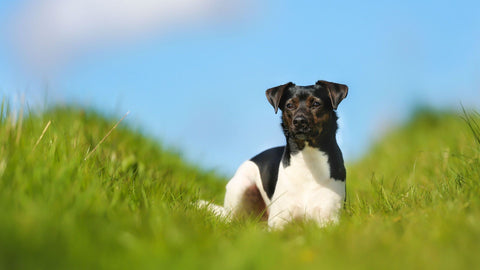

Give your nervous dog a confidence boost
It’s never nice when our pups are feeling stressed, but unfortunately – just like us humans – dogs can also be worriers.
Some dogs are particularly upset by loud noises, and some get scared when faced with unfamiliar people and new canine pals. Others may simply be shyer and more cautious on a day-to-day basis.
While every dog’s case is unique, there are some minor adjustments you can make to help your nervous pup feel more self-assured. Here are some of our top tips to help them enjoy a more ‘bowl-half-full’ outlook:
1. Consider a training programme
“Our dogs are highly empathic and emotional creatures, as every pet owner knows! Unfortunately, this can sometimes manifest in the form of anxieties and phobias which can interfere with their quality of life. Your vet will be able to recommend treatments to help ease your dog’s anxiety, potentially including sessions with a qualified Canine Behaviourist.” – Lana Foster RVN, Veterinary Technical Executive Activator at Lintbells
There are numerous training programmes across the UK which can help to build and boost your pet’s confidence. Some use techniques like counter-conditioning and desensitisation, whilst others focus more closely on improving dog-owner relationships.
It can be difficult to decide which style of training to choose (e.g. one-to-one or class-based) and what sort of trainer you should pick for your dog’s unique needs. We’d recommend going to watch a class and meet the potential trainer without your dog in tow before signing up. That way, you’ll get a feel for whether this is the appropriate training style and set-up for your pet, and you’ll avoid putting your nervous dog in a situation which may stress them out unnecessarily.
2. Learn the signs of nervousness in your dog
Every dog is unique – and their individual quirks are a big part of what makes them so special. However, these differences can make spotting the signs of nervousness somewhat tricky.
While some dogs may display the more obvious signs of nervousness – such as shaking, tucked-in tails, and hiding – others may have subtler body language when stressed, such as opening their eyes wide, yawning, and turning away. It’s important to take notice of the physical symptoms of your dog’s nervousness as it will help you to remedy the situation moving forward.
3. Be patient and understanding with your dog
Punishing your dog for being nervous and on edge will only make things worse. Dogs are very empathetic creatures; they’ll pick up on your mood, especially if you are visibly stressed out.
Remember that putting pressure on your pup to be confident can also be a form of punishment. Building confidence takes time, so be understanding with your dog and don’t punish them by pushing them into stressful situations before they’re ready.
Always try to stay mindful and calm, regardless. Giving your dog time and space to be brave will be worth it in the end!
4. Try a calming supplement
Calming supplements for dogs are not just for hyperactive dogs, they can also help nervous dogs by making them feel more relaxed and at ease with their environments. The natural ingredients in YuMOVE Calming Care can help support healthy brain function whilst maintaining the hormones responsible for happiness. This sort of calming supplement is something which can be enjoyed regularly, to help your pup tackle their nerves and be more confident every day.



